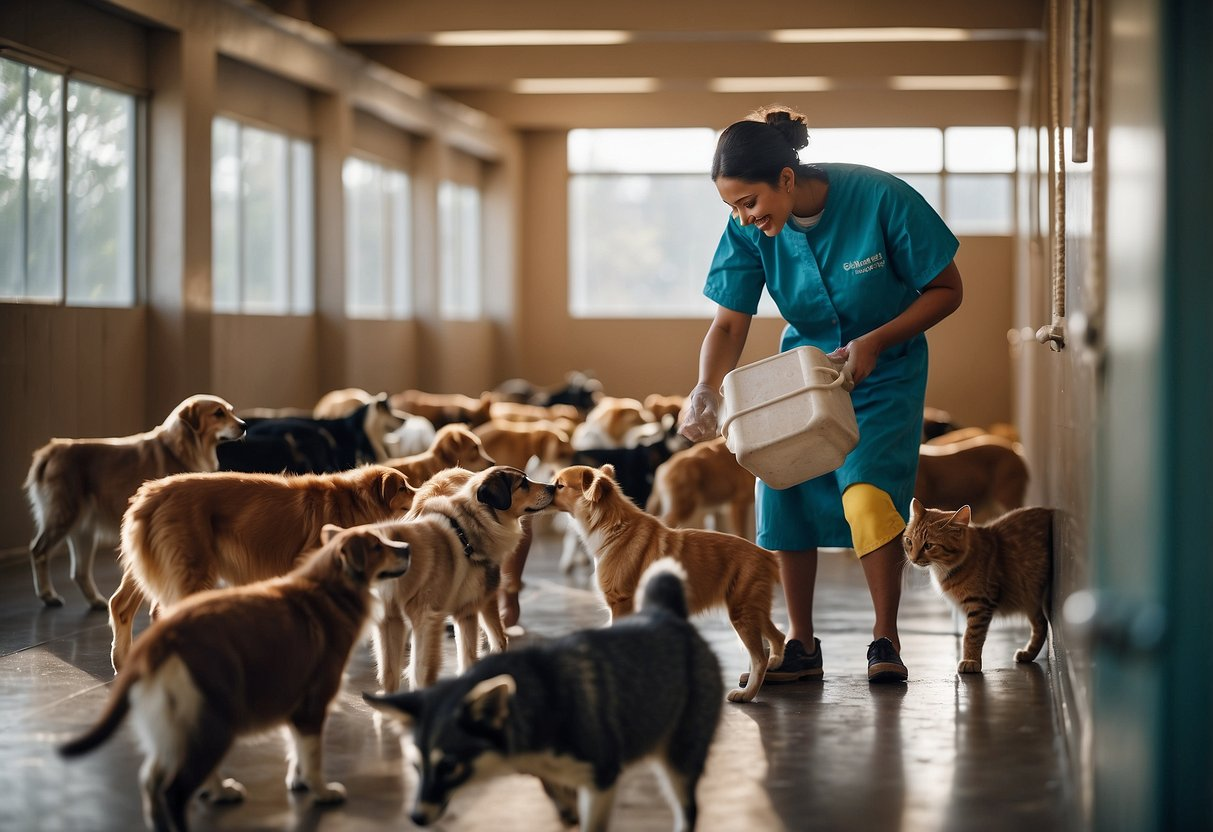Are you passionate about animals and looking to turn that passion into a meaningful career? Working in animal non-profit jobs can be a fulfilling and impactful experience. Many roles in animal welfare organizations allow you to make a difference in the lives of both animals and the communities that care for them. From handling administrative duties to directly caring for animals in shelters, there's a broad range of opportunities available.

Non-profit animal care jobs can be found across the globe, each focusing on different missions and goals. For example, organizations in places like Eastern North Carolina and Surabaya work tirelessly to care for abandoned and stray animals, providing them with shelter, medical care, and the hope of adoption. Whether you're involved in direct animal care or support roles, each job plays a crucial part in the organization's success.
Apart from typical shelter work, non-profit jobs in this sector also include unique positions such as those found in animal-assisted therapy organizations. These roles help facilitate the human-animal bond to offer therapeutic benefits to individuals in need. If you're dedicated to making a difference while building a rewarding career, exploring jobs in animal non-profits could be your next step.
Key Takeaways
- Working in animal non-profit jobs can be fulfilling and impactful.
- Opportunities exist globally, focusing on various missions like stray animal care and therapy.
- Jobs range from direct animal care to essential support roles.
The Landscape of Animal Non-Profit Careers
Animal non-profit careers offer diverse opportunities in fields like research, animal care, and fundraising. These roles require a range of skills and educational backgrounds, often paired with significant passion for animal welfare.
Job Categories and Roles
Several job categories exist in animal non-profits, such as animal sanctuary jobs and positions at the Humane Society of the United States. These roles include responsibilities from direct animal care to administrative and strategic tasks. Positions like research fellow, corporate relations intern, and senior legal coordinator involve various levels of expertise and commitment.
Animal care roles are hands-on. They often require knowledge of different species and their needs. Higher-level positions, like Senior Corporate Engagement Manager and CEO, involve management responsibilities and strategic oversight. Other roles such as fundraising specialists focus on securing financial resources to support the organization's mission.
Education and Skill Requirements
The education needed for animal non-profit jobs varies. Some roles may require specific degrees, such as a degree in animal science, biology, or non-profit management. Others may need specialized skills like grant writing or online marketing.
Practical experience is crucial. Internships and volunteering opportunities provide valuable experience. Many organizations offer animal advocacy courses to help interested candidates gain the necessary skills. Positions like research fellow or senior fellow often require advanced academic backgrounds and proven expertise.
A passion for animal welfare is often emphasized. Candidates need to show their commitment to the cause beyond just the required qualifications. Relevant certifications in areas such as animal care or project management can further enhance a candidate's profile.
Navigating Employment and Development
Entering the animal non-profit sector can start from internships and volunteer positions. Many organizations have structured programs to help individuals grow from entry-level roles into leadership positions. Development opportunities often include professional training and workshops.
Jobs such as interim project manager or grant specialist might serve as stepping stones to higher positions. Engaging in fundraising and academic research can also offer pathways for career advancement.
Networking within the industry is essential. Connecting with other professionals through conferences, seminars, and social media can open doors to new opportunities. Understanding the employers' needs and aligning personal skills with those requirements can lead to successful career growth in this rewarding field.
Diversity, Ethics, and Impact in Animal Non-Profit Work

Diversity, ethics, and measuring impact are essential in animal non-profit jobs. Embracing varied backgrounds and maintaining ethical standards can enhance effectiveness in animal advocacy.
Creating a Diverse and Inclusive Workforce
Animal non-profits thrive when they embrace diversity. Factors like race, gender, national origin, disability, sexual orientation, and varied experiences contribute to a rich organizational culture. For example, the Humane Society of the United States can benefit from diverse voices, ensuring holistic decision-making.
Organizations like Animal Charity Evaluators highlight the need for diverse staff in leadership. Different perspectives can improve strategies and outreach, ensuring that all community members feel represented and supported.
Ethics and Welfare: Core Tenets of Animal Advocacy
Ethics are fundamental in animal welfare work. Ensuring humane treatments is a top priority. Non-profits like Mercy for Animals and Animal Equality promote cruelty-free practices and policies.
Ethical issues also extend to how organizations operate internally. Open communication, transparency, and accountability are paramount. Ensuring fair wages and good working conditions reflect the ethical stance of a non-profit, aligning its internal practices with its mission of advocating for animal welfare.
Measuring Impact and Effectiveness
Measuring impact is crucial for assessing a non-profit's success. Groups like Open Philanthropy and Animal Charity Evaluators provide frameworks for evaluating effectiveness. Metrics may include the number of animals saved, changes in public policy, or levels of community engagement.
Non-profits such as The Good Food Institute also focus on innovative approaches, leveraging data to drive decisions. Ensuring that initiatives have measurable outcomes helps in securing funding and support, demonstrating the real-world impact of their work on animal welfare.
